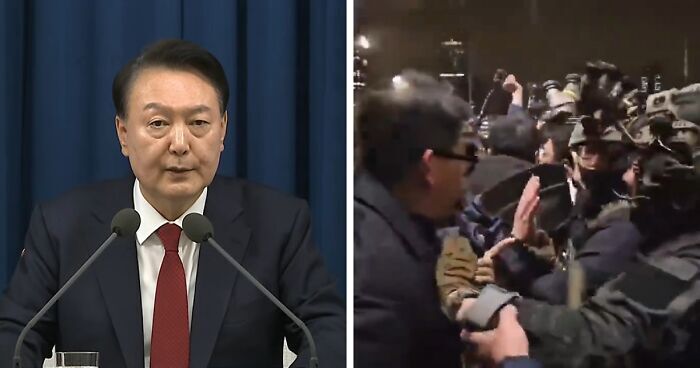
After South Korea’s President Declared Martial Law, Parliament Rejected It—Here’s What It Means
South Korean President Yoon Suk Yeol implemented “emergency martial law” on Tuesday, but the parliament has now rejected his declaration by a majority vote.
The martial law was announced during a televised briefing, and while it wasn’t clear how long this would stand, Yoon stated this process was mandatory in defending the country’s constitutional order.
This law was declared after Yoon had accused the country’s opposition party of sympathizing with communist North Korea and controlling the parliament.
Why did the South Korean president declare martial law?
Image credits: Planet Volumes / Unsplash
Yoon Suk Yeol implemented martial law in an effort to “eradicate pro-North Korean forces and protect the constitutional democratic order,” as reported by CBC News, and was in response to various political setbacks.
“I declare martial law to protect the free Republic of Korea from the threat of North Korean communist forces, to eradicate the despicable pro-North Korean anti-state forces that are plundering the freedom and happiness of our people and to protect the free constitutional order,” he stated.
“Through this martial law, I will rebuild and protect the free Republic of Korea, which is falling into the abyss of national ruin,” he continued. “To this end, I will definitely eradicate the anti-state forces who are the main culprit of the country’s ruination and conduct vicious activities.”
Image credits: YTN
The proclamation initially sent shockwaves throughout the country and the world, especially considering South Korea has been seen as democratic and without martial law since the 1980s, with some even labeling this as “one step closer to WWIII.”
“He must be impeached and held accountable for his actions,” reacted one user, adding, “Pray for South Korea!”
Others have emphasized the importance of the election, labeling Yoon as a “dictator.”
What does martial law mean in South Korea?
Image credits: Getty Images / Unsplash (Not the actual photo)
In broad terms, martial law in South Korea means the military commander is given temporary unlimited authority to make and enforce laws — and is usually enforced during times of war or rebellion.
All existing laws are put on hold for the time being.
South Korea’s military demands included that the parliament and other political gatherings capable of causing “social confusion” should be suspended, according to Yonhap news agency.
They also stated the country’s doctors — currently on strike — were to return to work within the next 48 hours.
Image credits: koryodynasty
However, the parliament voted to lift the declaration less than three hours later, with National Assembly Speaker Woo Won Shik stating that martial law was “invalid” and that lawmakers “will protect democracy with the people,” as per AP News.
Previously, television footage saw helmeted troops attempting to enter the National Assembly building. After the law’s withdrawal, these military personnel were seen leaving the grounds.
Opposition leader Lee Jae-myung said the party’s lawmakers would remain in the Assembly’s main hall until Yoon formally lifts the order.
Yoon has been pushing against the opposition party for years
Image credits: EdgeE50124
Yoon’s struggle against the opposition-controlled parliament has been evident since they took office in 2022.
His conservative People Power Party has been locked in an impasse with the liberal opposition Democratic Party regarding next year’s budget bill.
He has also been dismissing calls for independent investigations into scandals that involve his wife and top officials, which has drawn disapproval from his political rivals.
Image credits: Shawn / Unsplash
The opposition has been attempting to impeach three top prosecutors, including the chief of the Seoul Central District Prosecutors’ Office, where conservatives have called a vendetta against their criminal investigations of Lee — a favorite in the 2027 presidential election, according to opinion polls.
Local news outlets reported military presence at the parliament
Image credits: Kim Min-Hee-Pool/Getty Images
Helicopters were seen flying above in Seoul as police guards stood in front of the National Assembly. Additionally, Yonhap News Agency reported the entrance to the parliament building had been blocked.
“Tanks, armoured personnel carriers and soldiers with guns and knives will rule the country,” Lee said in a livestream.
Image credits: YTN
PRESIDENT YOON DECLARES MARTIAL LAW IN SOUTH KOREA.
NOT A SOUL OUT IN THE STREETS OF CENTRAL SEOUL AND ITS ONLY 11PM.
BRUH…. pic.twitter.com/jDDkgYRtna
— johncho {&} 🟢⚪️⚫️ k/acc (@Iam_JohnCho) December 3, 2024
“The economy of the Republic of Korea will collapse irretrievably. My fellow citizens, please come to the National Assembly.”
A White House spokesperson has added that the Biden administration is in contact with the South Korean government and will continue to monitor the situation closely.



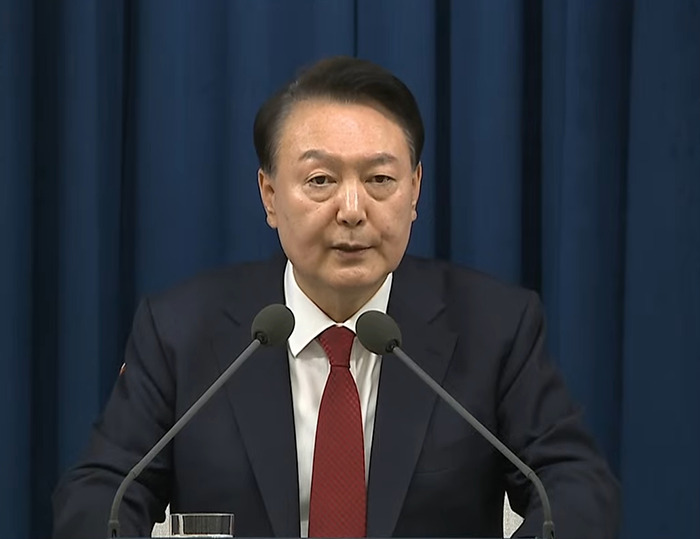
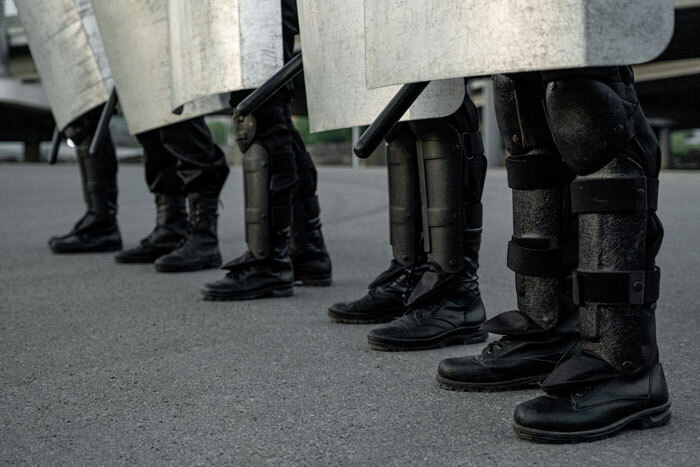
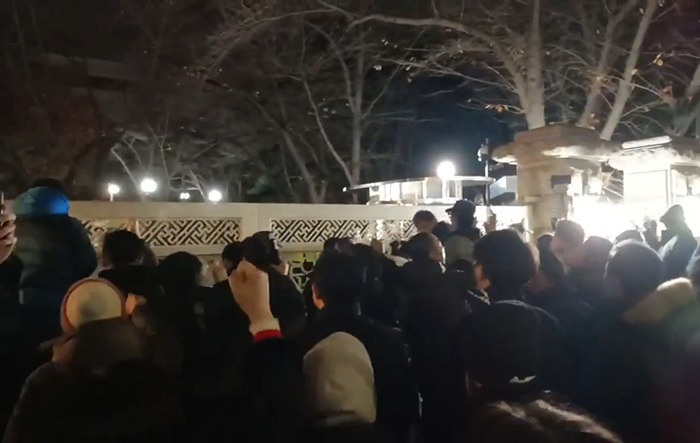
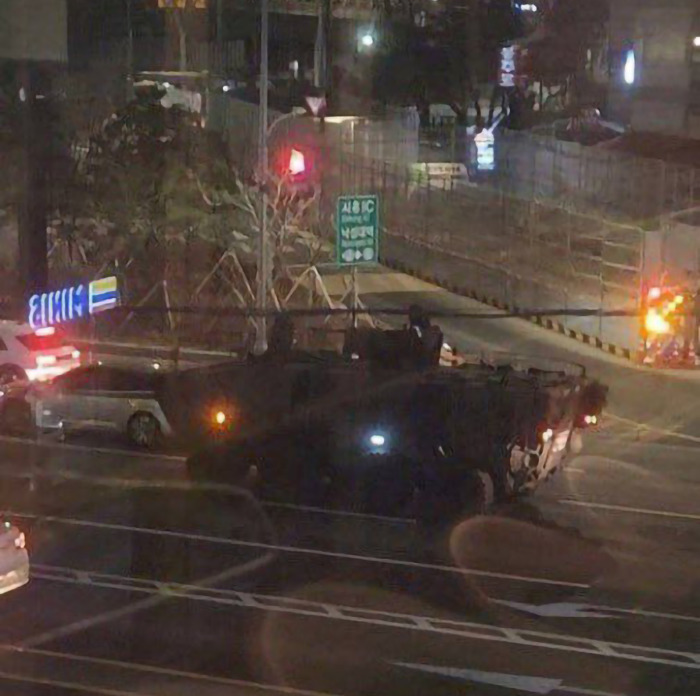

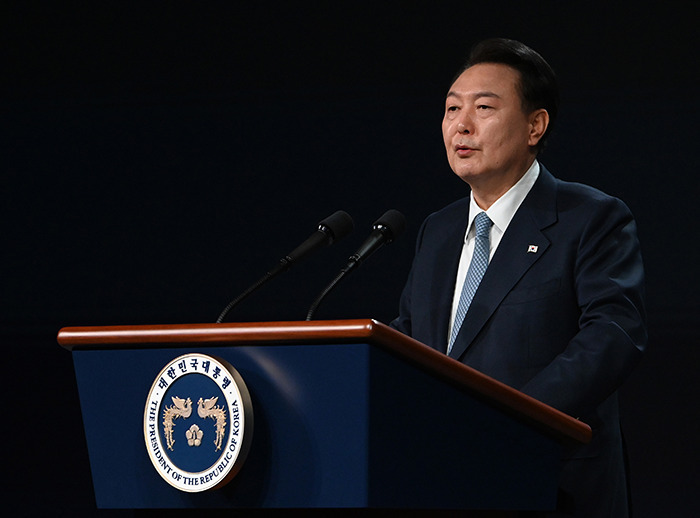
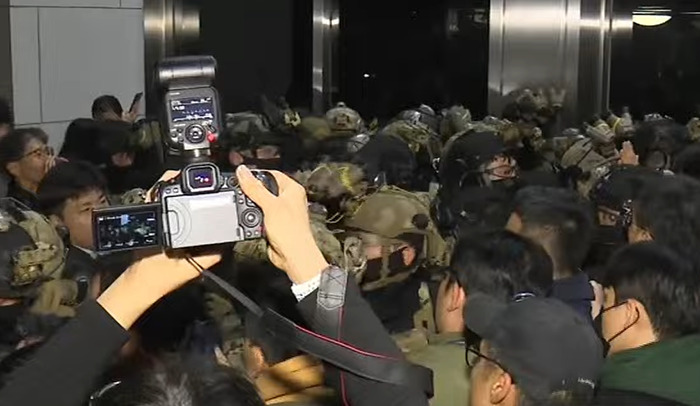





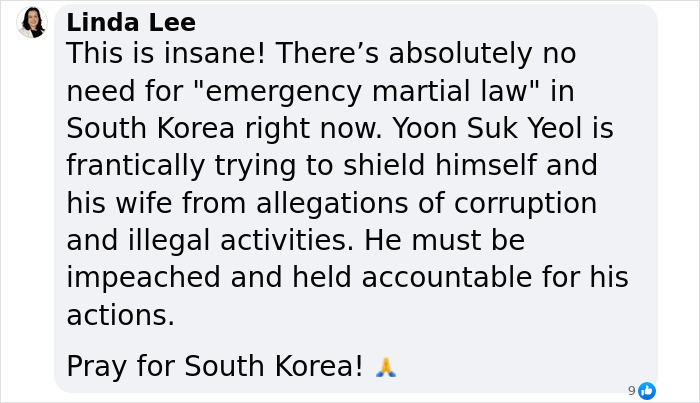




0
0